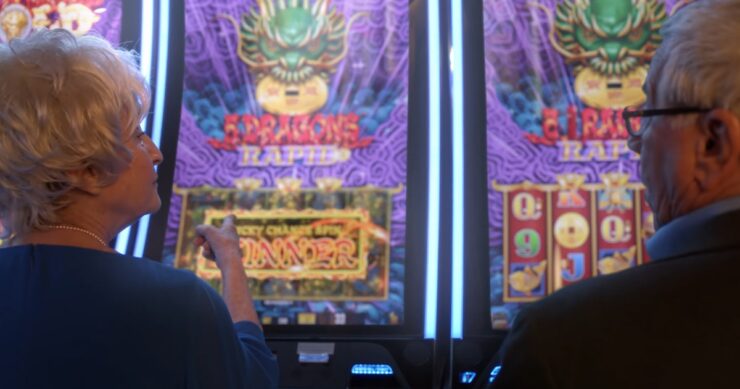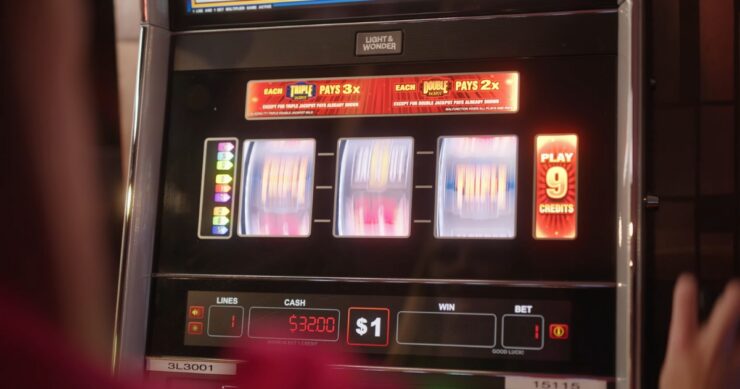In the realm of gambling, slot games stand as a towering symbol of chance and uncertainty. Their core mechanics are governed by Random Number Generators (RNGs), which are designed to ensure a completely random outcome with each spin.
This randomness is the bedrock of fair play in casinos, but it also poses a tantalizing challenge: can artificial intelligence (AI) crack the code and predict RNG outcomes in slot games? The answer is not straightforward. To understand the complexity, we must first grasp the nature of RNGs and the principles of AI.
RNGs: The Heart of Slot Games
RNGs are sophisticated algorithms used in computing and gaming to generate random sequences of numbers. In slot games, these numbers correspond to the different symbols and outcomes on the reels.
The key characteristic of a good RNG is its unpredictability and lack of discernible patterns. CasinoMIRA, a prominent name in the world of online casinos, relies on these RNGs to ensure fair and unpredictable gameplay.
These algorithms can be of two types: True Random Number Generators (TRNGs) and Pseudo-Random Number Generators (PRNGs). TRNGs derive their randomness from physical phenomena, like radioactive decay, which are inherently unpredictable. PRNGs, on the other hand, use mathematical formulas to generate sequences that appear random but are, in fact, deterministic.
Artificial Intelligence: The Pursuit of Patterns

AI, particularly machine learning, operates on the principle of finding patterns in data. By analyzing vast amounts of information, artificial intelligence can learn to make predictions or decisions based on historical trends and relationships.
However, the challenge with predicting RNG outcomes in slot games lies in the nature of randomness itself. If an RNG is perfectly random, there should be no patterns for AI to learn. Therefore, in theory, artificial intelligence cannot predict the outcome of a perfectly random RNG.
The Battle Against Imperfection
Despite the theory, in practice, no RNG is entirely flawless. PRNGs, commonly used in online slots, are deterministic. They depend on initial ‘seed’ values and algorithms to produce number sequences. If, by some means, an AI could decipher the seed value and understand the algorithm, it could theoretically predict future outcomes.
This potential vulnerability has led to instances where individuals have exploited imperfect RNGs. Famous cases in the gambling world include the story of Ronald Dale Harris, a software engineer who manipulated PRNGs in keno machines.
AI and RNG Security
In response to such threats, the gaming industry continually enhances the security and complexity of RNG algorithms. Simultaneously, regulatory bodies rigorously test and certify RNGs to ensure their fairness and unpredictability.
In this cat-and-mouse game, artificial intelligence plays a crucial role not in predicting RNG outcomes, but in ensuring their security. Advanced AI algorithms are employed to test RNG systems, searching for any patterns or vulnerabilities that could be exploited.
The Ethical and Legal Landscape

Even if AI could predict RNG outcomes, there’s a significant ethical and legal dimension to consider. Using artificial intelligence for such purposes would likely be deemed cheating, analogous to card counting in blackjack. Casinos and gaming authorities have strict measures and penalties for such activities.
Moreover, the integrity of gambling relies on the premise of chance. Any method that undermines this principle not only faces legal repercussions but also erodes the trust and enjoyment that form the foundation of the gaming industry.
The Future of AI in Gaming
Looking ahead, AI’s role in gaming is set to expand, but not in the direction of predicting RNG outcomes. Instead, artificial intelligence is being used to enhance player experience, develop more engaging games, and ensure responsible gaming practices. AI-driven analytics help casinos understand player behavior, customize experiences, and identify problem gambling.
The Role of AI in Game Development
AI’s impact on game development extends beyond security and player experience. It’s revolutionizing how games are designed and function. Developers use AI to create more realistic and dynamic game environments.
In slot games, artificial intelligence can tailor the themes, sounds, and graphics to individual preferences, ensuring a more immersive and personalized experience.
Furthermore, AI aids in testing and refining new games. By simulating millions of gaming sessions quickly, artificial intelligence provides invaluable feedback on game balance, difficulty levels, and potential technical issues. This rapid testing process ensures that new slot games are not only exciting but also fair and reliable.
Understanding Player Behavior

A significant advantage of AI in the gambling industry is its ability to analyze player behavior. This analysis goes beyond enhancing player experience; it’s crucial for responsible gaming. AI systems can monitor gaming patterns and detect signs of problem gambling. They can then trigger interventions, such as alerts or temporary restrictions, to help players maintain control.
This aspect of artificial intelligence is particularly important in online gambling, where players are isolated and more susceptible to losing track of time and expenditure. By ensuring a safer gaming environment, AI contributes positively to the industry’s reputation and player well-being.
The Myth of Prediction and the Reality of Chance
The myth of AI predicting slot game outcomes is rooted in a misunderstanding of both AI and RNG. artificial intelligence excels in pattern recognition, but RNGs, by their very nature, don’t provide patterns to recognize. The true randomness of RNGs ensures that each spin is independent and unaffected by previous results.
This independence is crucial for fair play. If players could predict outcomes, it would not only be illegal but would also ruin the thrill that comes from the unpredictability of gambling.
The Continuous Evolution of RNG and AI
As technology advances, both RNGs and AI are evolving. RNG algorithms are becoming more sophisticated, reducing any minute imperfections and making them more secure against potential threats. On the other hand, artificial intelligence is becoming more adept at complex tasks, but its application in gambling remains focused on enhancing the gaming experience and ensuring security and fairness.
The continuous improvement in both fields suggests a future where AI and RNG coexist harmoniously, each playing its role in providing a safe, fair, and enjoyable gaming experience.
The Bottom Line

The quest to predict RNG outcomes in slot games with artificial intelligence is a blend of technological curiosity and a misunderstanding of randomness. While AI has a significant and growing role in the gambling industry, its application lies in enhancing and securing the gaming experience rather than in breaking the foundational principle of chance.
In essence, the allure of slot games lies in their unpredictability, a feature that AI, in its current and foreseeable form, cannot and should not overcome. The secret to enjoying slot games, therefore, isn’t in attempting to forecast their outcomes but in embracing the thrill of the unknown, responsibly and within the boundaries of fair play.
Related Posts:
- Can Time of Day or Day of the Week Impact Your Wins?…
- Celebrity Beauty Secrets: Exploring Who Uses…
- AI Unveiled: Surprising 9 Things You Probably Didn't…
- Sports Betting vs. Casino Games: A Close Look at UK…
- 6 Best Pop Culture Games on the Market in 2024
- Breaking News: Tori Kelly Hospitalized in Critical…











